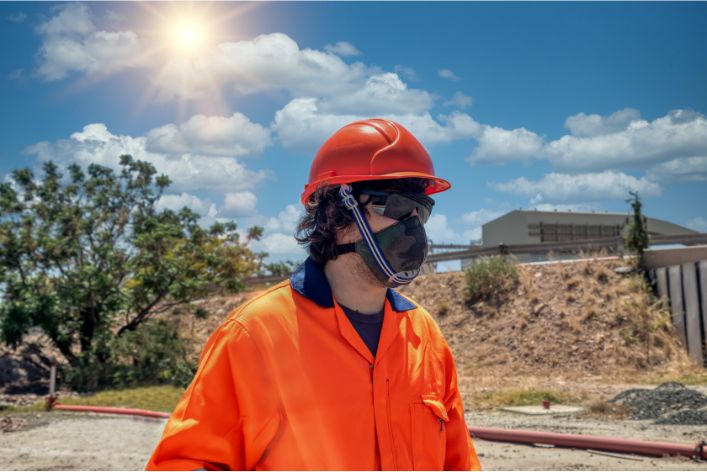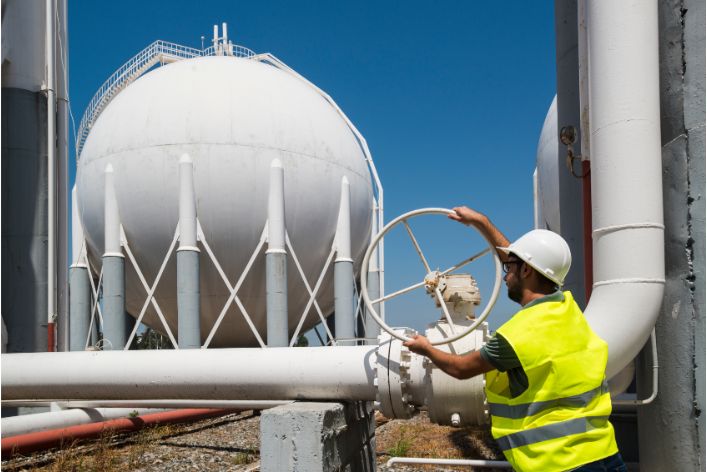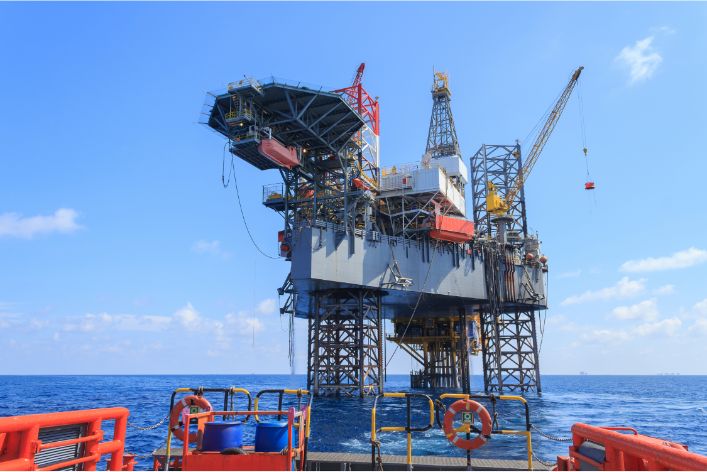Let’s explore the top paying oil and gas professions in Nigeria.
Nigeria’s oil and gas industry is one of the largest in Africa. It accounts for over 90% of the country’s export revenue and is a critical sector for Nigeria’s economy.
The oil and gas industry is responsible for providing jobs, generating revenue, and driving growth in the country’s economy.
The purpose of this blog post is to explore the top-paying oil and gas professions in Nigeria.
The post will provide valuable insights into the industry, the best-paying jobs, and the skills required to excel in this highly competitive market.
Top Paying Oil and Gas Professions in Nigeria
Oil and gas professions refer to a range of careers that involve the exploration, transportation, and production of oil and gas resources.
These careers are lucrative and highly sought after in Nigeria, which is one of the largest oil-producing countries in Africa.
Here is a list of the top-paying oil and gas professions in Nigeria and their average salaries:
- Petroleum Engineering – ₦7,200,000 annually
- Geosciences – ₦5,500,000 annually
- Reservoir Engineering – ₦5,000,000 annually
- Production Engineering – ₦4,800,000 annually
- Drilling Engineering – ₦4,500,000 annually
- Health and Safety Management – ₦4,000,000 annually
- Project Management – ₦3,600,000 annually
- Supply Chain Management – ₦3,000,000 annually
- Finance and Accounting – ₦2,800,000 annually
- Human Resources – ₦2,500,000 annually
Let’s take a closer look at each of these professions and what they entail:
1. Petroleum Engineering
As the top-paying profession in the oil and gas industry in Nigeria, petroleum engineering involves the design, development, and operation of oil and gas wells.
Petroleum engineers utilize their technical knowledge and skills to maximize the production of oil and gas while minimizing the cost, including exploration, drilling, and extraction of crude oil and natural gas.
A petroleum engineer must have exceptional analytical, problem-solving, and communication skills.
2. Geosciences
Geoscientists are professionals who study the earth and its composition to identify areas that may contain oil and gas resources.
They commonly explore subsurface structures and geologic formations to find and develop reserves of oil and gas. They utilize complex equipment and tools to gather and analyze data, such as rock and soil samples and seismic waves, and interpret their findings to help identify the best places to drill.
A geoscientist must have a strong curiosity for how our planet works and excellent observational, analytical, and communication skills.
3. Reservoir Engineering
Reservoir engineers work with geoscientists and drilling engineers to optimize the production of oil and gas by analyzing data from the well’s performance, modeling reservoir behavior over time, and developing computer simulations that will predict the future output.
They monitor the performance of oil and gas reservoirs, adjust the production methods to increase production, and ensure the well’s integrity and safety.
A reservoir engineer must have an understanding of geology and excellent problem-solving and data management skills.
Read: How to Become a Successful Pipeline Engineer in Nigeria
4. Production Engineering
Production engineers work with oil and gas reservoirs to maximize output and minimize downtime, ensuring the well operates efficiently and effectively.
They optimize oil and gas production by identifying problems, implementing solutions, and ensuring equipment and facilities are running correctly.
They conduct various tests to determine the well’s productivity and make decisions on how to improve it. A production engineer must have excellent analytical, problem-solving, and people skills.
5. Drilling Engineering
Drilling engineers work on-site to design and implement drilling programs, including the drilling rig’s setup, drilling direction, and angle, drilling mud, drilling bits, and casing design.
They are responsible for the drilling operation’s safety, wellbore quality, and drilling cost’s efficiency. They work with geoscientists and other engineers to plan, design, and manage complex drilling projects.
A drilling engineer has to be a highly skilled and motivated individual with excellent communication, planning, and problem-solving abilities.
6. Health and Safety Management
Health and safety managers are responsible for ensuring compliance with government regulations and company policies related to health and safety in the workplace.
They are in charge of monitoring and managing on-site risks, identifying and mitigating hazards, initiating emergency procedures, and ensuring that all staff receives proper safety training.
A health and safety manager must have excellent communication, organizational, and safety management skills.
7. Project Management
Project managers are responsible for managing and coordinating complex oil and gas projects, ensuring that they are completed on time, within budget, and to the highest standards.
They oversee all aspects of the project, from design and planning to execution and delivery, and work with various stakeholders, including engineering teams, contractors, and clients.
A project manager must have strong leadership, communication, planning, and problem-solving skills.
Read: Role of Data Analysts in Driving Nigeria’s Oil and Gas Sector
8. Supply Chain Management
Supply chain managers handle the movement of goods and materials, from the procurement of raw materials to the delivery of finished goods.
They are in charge of managing the logistics, inventory control, and distribution of materials and equipment required for oil and gas operations.
They work closely with suppliers and vendors, ensuring that the supply chain is operating efficiently and sustainably. A supply chain manager must have excellent communication, collaboration, financial management, and problem-solving skills.
9. Finance and Accounting
Financial and accounting professionals working in the oil and gas industry manage financial planning, accounting, and reporting for oil and gas operations.
They oversee financial policies, maintain financial records, manage budgets, and provide forecasts and analysis.
They also monitor and analyze financial performance, ensuring compliance with accounting and tax regulations. A finance and accounting professional must have strong analytical, problem-solving, and communication skills.
10. Human Resources
Human resource managers are responsible for managing employee relations, staffing, and training objectives. They are also involved in areas such as benefit programming, compensation, and human resource policy.
They ensure that the company hires and retains the best employees and provide them with the needed training to do their job effectively.
A human resource manager must have excellent communication, collaboration, and problem-solving skills.
In a nutshell, the oil and gas industry is a vital sector in Nigeria’s economy that generates a significant amount of revenue. As demonstrated above, there are various lucrative career paths in this industry that require skilled professionals to maximize the production of oil and gas and maintain the country’s position as a leading producer globally.
By offering competitive compensation packages, the oil and gas industry attracts top talent and invests in the development of its employees to maintain their position in the highly competitive market.
Read: The Demand for Petroleum Engineers in Nigeria: A Deep Dive
Petroleum Engineers
Petroleum engineering is one of the top-paying professions in Nigeria, and its importance is evident in the country’s economy. These engineers are responsible for the exploration, extraction, and production of oil and gas resources.
Overview of the Petroleum Engineering Profession
The petroleum engineering profession is a specialized field that requires expertise in engineering, geology, and other related disciplines.
Petroleum engineers design and develop plans for the drilling and completion of oil and gas wells, and they oversee the operations to ensure that they comply with safety regulations and environmental standards.
Petroleum engineers also analyze and interpret geological data to determine the best locations for oil and gas exploration, assess the feasibility of projects, and estimate the potential yield of oil and gas reserves.
Skills and Qualifications Needed for the Profession
To become a petroleum engineer in Nigeria, candidates need at least a bachelor’s degree in petroleum engineering, chemical engineering, or a related field. In addition, certification from the Council for the Regulation of Engineering in Nigeria (COREN) is also required.
Petroleum engineers need to have excellent analytical and problem-solving skills, as well as strong communication and interpersonal skills. They should also have a thorough understanding of drilling techniques, reservoir management, and production technology.
Average Salary for Petroleum Engineers in Nigeria
Petroleum engineering is one of the highest-paying professions in Nigeria, and petroleum engineers can earn an average salary between ₦500,000 and ₦1,500,000 per month. The salary range depends on the level of experience and expertise of the individual and the company employing them.
Job Opportunities for Petroleum Engineers
There are various job opportunities available for petroleum engineers in Nigeria, and these include working for oil and gas companies, government agencies, or consulting firms. Some of the major oil and gas companies in Nigeria that employ petroleum engineers include Shell, Chevron, ExxonMobil, and Total.
Petroleum engineers can work in different areas of the oil and gas industry, such as exploration, drilling, production, and reservoir engineering. They can also work in research and development, where they develop new technologies and techniques to improve the efficiency and safety of oil and gas operations.
Petroleum engineering is a highly specialized profession that plays a critical role in the Nigerian economy. As Nigeria continues to be a major player in the global oil and gas industry, the demand for skilled petroleum engineers is expected to rise, making it an attractive and lucrative career option for those with the necessary educational background and technical skills.
Read: Understanding the Role of Geoscientists in Nigeria’s Oil Industry
Geologists
Geology is a complex and exciting field that deals with the study of the earth’s structure, composition, and processes. In the oil and gas industry, geologists play a crucial role in identifying and assessing potential oil and gas reservoirs.
Overview of the Geology Profession
Geologists are responsible for examining the physical and chemical properties of rocks, minerals, and other earth materials. They use this information to understand the history of the earth and predict geological events that can impact oil and gas exploration and production.
Geologists working in the oil and gas industry often specialize in exploring and evaluating potential oil and gas reserves.
They work on-site in the field, analyzing rock samples and using advanced technology to locate and map potential reservoirs.
They also work in laboratories and offices, analyzing data and creating models to help oil and gas companies make informed decisions about exploration and production.
Skills and Qualifications Needed for the Profession
To become a geologist in Nigeria, you need a minimum of a Bachelor’s degree in geology or a related field. A Master’s degree or Ph.D. is often necessary for advancement and specialized roles. With the right education and training, you can acquire the following skills:
- Strong analytical skills
- Problem-solving skills
- Excellent communication skills
- Ability to work in a team
- Attention to detail
- Proficiency in the use of geological software
- Knowledge of oil and gas exploration and production principles
Average Salary for Geologists in Nigeria
Geology is one of the highest-paying professions in the oil and gas industry in Nigeria. According to Payscale, the average salary for geologists in Nigeria is ₦8,000,000 per year. However, salaries can vary depending on experience, location, and job role. Geologists with advanced degrees, specialized certifications, and extensive experience tend to earn higher salaries.
Job Opportunities for Geologists
The oil and gas industry is the primary employer of geologists in Nigeria. However, careers in geology can also be found in academia, environmental consulting, mining, and other related industries. Geologists can pursue a variety of job roles, including:
- Reservoir Geologist
- Exploration Geologist
- Development Geologist
- Geological Consultant
- Petrophysicist
- Regional Geologist
- Research Geologist
Geologists can also pursue leadership positions, such as Chief Geologist, Chief Exploration Geologist, or Chief Reservoir Geologist.
Ultimately, geologists play a vital role in the oil and gas industry in Nigeria. With the increasing demand for oil and gas, the opportunities for geologists to work in the industry are vast.
Geology is a well-paying profession, and with the right skills, qualifications, and experience, geologists can earn six-figure salaries and achieve career success.
Read: Top 10 Highest Paying Professions in Nigeria: 2023 Edition
Drilling Engineers
Drilling engineers are responsible for overseeing the drilling process in oil and gas extraction. They ensure that drilling operations are executed safely, efficiently, and in compliance with regulations. Here’s what you need to know about this essential oil and gas profession in Nigeria:
Overview of the drilling engineering profession
- Drilling engineers design, plan, and supervise drilling operations in oil and gas fields.
- They analyze data and develop drilling programs to ensure optimal drilling efficiency and minimize risks.
- They collaborate with other professionals, such as geologists and oil rig crews, to ensure safe and successful drilling operations.
- They also manage the budget and timelines of drilling projects to ensure that they are completed on time and within budget.
Skills and qualifications needed for the profession
- To become a drilling engineer, you typically need a bachelor’s degree in petroleum engineering, mechanical engineering, or a related field.
- You should have a strong understanding of drilling technology, equipment, and operations.
- Excellent analytical, problem-solving, and decision-making skills are essential, as drilling engineers need to make technical decisions quickly and confidently.
- Communication and teamwork skills are also crucial, as drilling engineers often work with a variety of professionals across multiple departments.
Average salary for drilling engineers in Nigeria
Drilling engineers are well-compensated in Nigeria, with average annual salaries ranging from NGN 9,000,000 to NGN 14,000,000 (approximately USD 23,000 to USD 36,000).
Job opportunities for drilling engineers
The oil and gas industry is a major employer of drilling engineers in Nigeria. There are also opportunities for drilling engineers to work in consulting firms, research institutions, and government agencies.
With the increasing demand for oil and gas, the demand for skilled drilling engineers is expected to remain strong in Nigeria for many years to come.
In fact, drilling engineers play a crucial role in the extraction of oil and gas in Nigeria. With the right education, skills, and experience, drilling engineering can be a lucrative and exciting career path.
Pipeline Engineers
The oil and gas industry in Nigeria needs efficient transportation of their products.
Overview of the pipeline engineering profession
Pipeline engineers design, construct, operate, and maintain pipelines that transport oil and gas products from one location to another.
These pipelines can be located onshore, offshore, or even underground.
Pipeline engineers ensure that the pipeline system is safe, efficient, and up-to-date with the latest technology and industry standards.
Skills and qualifications needed for the profession
Most pipeline engineers have a degree in civil, mechanical, or petroleum engineering.
They must possess a strong understanding of fluid dynamics, stress analysis, corrosion, and erosion of materials.
Pipeline engineers must also have excellent communication, problem-solving, and project management skills.
Average salary for pipeline engineers in Nigeria
The average salary for pipeline engineers in Nigeria ranges from ₦3,000,000 – ₦15,000,000 per annum.
However, the salary range usually depends on the level of education, experience, and the size and complexity of the projects they are handling.
Job opportunities for pipeline engineers
There are numerous opportunities for pipeline engineers in Nigeria.
Both local and international oil and gas companies are constantly in search of talented pipeline engineers to fill key positions in their organizations.
Pipeline engineers can find job opportunities in companies such as NNPC, Chevron, Shell, ExxonMobil, Total, and more.
They can also work as consultants, freelancers, or start their own pipeline engineering firms.
Pipeline engineering is a crucial profession in the oil and gas industry in Nigeria.
The role of pipeline engineers in designing, constructing, operating, and maintaining pipelines cannot be overemphasized.
The profession requires a high level of technical expertise, project management skills, and excellent communication and problem-solving skills.
Pipeline engineers are handsomely paid and can find job opportunities in both local and international oil and gas companies.
If you are interested in pursuing a career in pipeline engineering in Nigeria, you should consider acquiring the necessary education, skills, and experience to qualify for the job.
Conclusion
To wrap up, the oil and gas industry in Nigeria is a lucrative place to work with various professions offering a high salary. The top-paying jobs include Petroleum Engineers, Geoscientists, Petroleum Economists, and Production Engineers.
Professionals in the oil and gas sector play a crucial role in ensuring the smooth functioning of the industry, from exploration to production to distribution. Without them, the industry would be unable to meet the ever-increasing energy demand of the country.
For those interested in pursuing a career in the oil and gas industry in Nigeria, there are various opportunities available, ranging from entry-level positions to specialized roles. It is essential to acquire the necessary skills, education, and experience to stand out in the highly competitive job market.
On a final note, the oil and gas industry in Nigeria continues to offer excellent employment prospects for those who are willing to work hard and continuously upgrade their knowledge and skills. With its potential for growth and expansion, the sector presents exciting opportunities for professionals to build rewarding careers.




